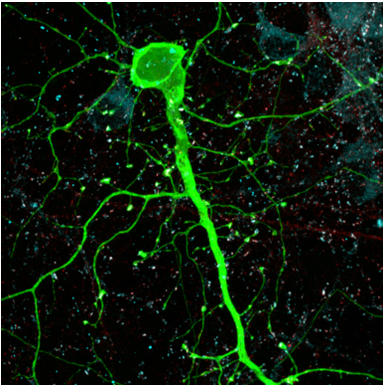Tag: Psychiatry
-

Mechanism Behind Sporadic Alzheimer’s Gene Discovered
Mutations in the gene BIN1 may weaken synapses, hurting neural communication and contributing to the development of Alzheimer’s disease, according to a recent study.
-

New Fragile X Genes Discovered
A genome-wide analysis revealed nine new genes associated with fragile X syndrome, findings that shed light on the complex hereditary mechanisms behind the genetic disease.
-

New Insights Into Reward-Motivated Behavior
The ventral striatum, a small part of the brain’s basal ganglia, directs behavior by assigning a reward dimension to everyday items, according to a recent study.
-

Fighting Cancer, Becoming an Adult
Teens and young adults with cancer get support from a special oncology program. Read the story in Northwestern Medicine magazine.
-

Refining Standards of Maternal-Fetal Care
Novel research is changing the way we approach healthcare for mothers and their babies. Read the feature in Northwestern Medicine magazine.
-

When Kids’ Autistic Brains Can’t Calm Down
A new Northwestern Medicine study shows how a breakdown in the development of inhibitory neurons helps explain autism’s link to epilepsy.
-

Romantic Relationships Buffer LGBT Youth From Emotional Distress
Lesbian and gay youth showed significantly less psychological distress and were buffered against the negative effects of bullying and victimization when in a relationship.
-

Active Non-Coding DNA May Help Pinpoint Genetic Risk for Psychiatric Disorders
Northwestern Medicine scientists have demonstrated a new method that helps to pinpoint which genetic variants might be most important in the development of schizophrenia and related disorders.
-

Stopping Violence, Before It Happens
Hans Breiter, ’88 MD, professor of Psychiatry and Behavioral Sciences, is leading the development of a radical, proactive approach to stopping violence using advanced mathematical models of human emotion.
-

Mental Healthcare on Hand
With evidence-based smartphone apps developed by our Center for Behavioral Intervention Technologies, mental healthcare is always within reach.






